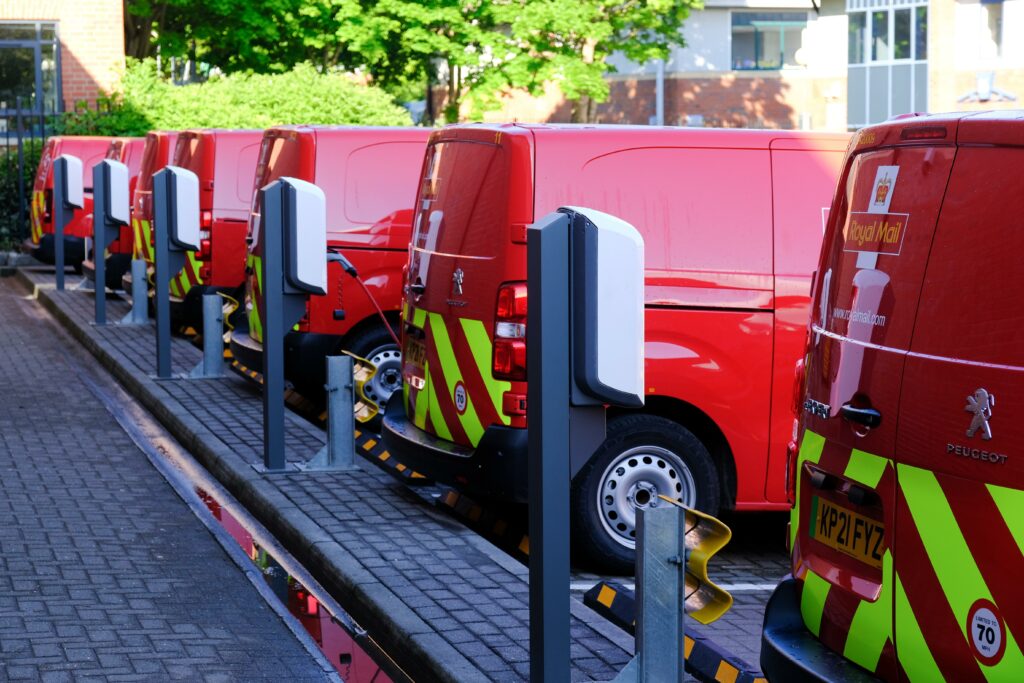The Optimise Prime formal trial period has begun as the minimum number of vehicles required and the systems needed to capture data are all now in place.
The trial – involving UKPN, Centrica, Royal Mail, Hitachi, Uber and SSEN – has now exceeded the minimum required number of vehicles for statistical significance, with around 3,000 vehicles participating across the three different elements of the project.
Trials are to continue for the next year to capture the impact of seasonal change and will involve the testing of a range of different services including flexibility and profiled connections.
In the depot trials, charging across nine Royal Mail depots in and around London is being controlled and monitored by an optimisation system developed by Hitachi.
In June, Royal Mail announced plans to boost its UK electric vehicle (EV) fleet ten-fold, with an additional 3,000 vehicles to be rolled out.
Alongside capturing data from chargepoints and vehicle telematics systems, the project will also trial the application of profiled connections, where the total amount of electrical load that a site can put on the distribution network varies throughout the day.
Firm-forward and day-ahead flexibility services will also be trialed, allowing UKPN to request further reductions in EV charging when the network is under stress. If these trials prove successful, these products will allow more EVs and depots to be connected to the existing network infrastructure.
In the home trials, telematics and chargepoint data is being collected from electric vans being charged at British Gas drivers’ homes throughout the UK with an aim of gaining a better understanding of how business vehicles could impact demand at domestic properties and help networks plan future investment.
Later in the year, Optimise Prime will also test the provision of day ahead and continuous flexibility services from the vehicles to UKPN and SSEN via Centrica’s FlexPond optimisation platform.
The third trial, the Mixed Trial, has been collecting and analysing trip data from 1,000 Uber EVs operating throughout Greater London since September 2020. The project is using trip data and chargepoint locations to model where charging is likely to happen, as well as identifying areas where charging infrastructure may not be meeting demand.





